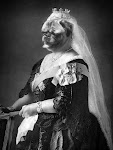WOW! Those who know me will know I do not use that expression a lot. For whatever reason, I am not easily impressed by many things. I guess my personality and life experiences have ingrained a bit of cynicism in me. Therefore for me to say WOW twice now about last night's Kansas City Symphony concert means a lot.
The concert was demanding in and of itself: Schoenberg's Verklarte Nacht, Rachmaninoff Rhapsody on a Theme of Paganini and the Ravel Daphnis and Chloe Suite #2.
Schoenberg's early pre-dodacaphonic work, is a lush, hyper-romantic work, full of complex chromaticism and detailed sound images. The work closely follows a poem by the German poet Richard Dehmel. A large except of the poem was printed in the score and also in the program notes for the concert:
"Two people walk through the bare, cold woods; the moon runs along, they gaze at it. The moon runs over tall oaks, no cloudlet dulls the heavenly light into which the black peaks reach. A woman's voice speaks:
"I bear a child, but not by you. I walk in sin alongside you. I sinned against myself mightily. I believed no longer in good fortune but still had mighty longing for a full life, mother's joy and duty; then I grew shameless, then horror-stricken, I let my sex be taken by a stranger and even blessed myself for it. Now life has taken its revenge: Now I have met you.'
"She walks with clumsy gait. She gazes upward; the moon runs along. Her somber glance drowns in the light. A man's voice speaks:
"'The child that you conceived be to your soul no burden. Oh look, how clear the universe glitters! There is a glory around All, you drift with me on a cold sea, but a peculiar warmth sparkles from you in me, from me in you. It will transfigure the strange child you will bear for me, from me; you brought the glory into me, you made myself into a child.'
"He holds her around her strong hips. Their breath kisses in the air. Two people walk through the high, light night."
Thus the work, originally written for 6 strings in pairs (Vioin, Viola and Cello) journeys from confused agitation, darkness and remorse to redemption, acceptance and light. Stern obviously loves the music, as his illustrated talk before the performance revealed. The talk was informative (even to me who had heard the piece in the chamber version life several times but never the string orchestra version) and likely necessary, as I am sure most of the audience had never heard the piece and were probably afraid of it. The Symphony strings were lush but clear, thus illustrating the chamber music origins of the piece. Maybe a touch more heft was needed in the cellos at the climactic D-major chord representing the revelation of love and redemption, the transfiguring moment of the piece, but that is a minor quibble. This performance held up to any recorded performance I have heard, easily bettering Karajan's mushy classic performance. The audience was quite impressed as well, hopefully changing some minds about this somewhat neglected masterwork.
No illustrative talk was needed for Rachmaninoff's popular Rhapsody. The soloist was Yuja Wang, a 19 yr old student at the Curtis institute of Music in Philadelphia. She appeared as part of a relationship between Curtis and the Symphony to introduce some of their top talent.
I have to admit some of my prejudice (we all have them so get over it); were we going to hear another oriental wunderkind, full of technique and ability to get all the notes but not having a lick of musicality? When Leon Fleisher played the Beethoven Emperor here at the opening concert, it was obvious he was not back to his prime form. The long period of his disability and the ravages of time showed. But the communication and the courage of the artist triumphed despite numerous technical flaws. Give me Alfred Cortot's wrong notes but incredible phrasing and lyricism in Chopin and Fleisher's ability to communicate the music over some technocrat anyday.
This prejudice was blown away immediately by Wang's lovely lyricism and deep understanding of this technically challenging piece. Her phrasing was lyrical and her technique used to illustrate the lively rhythm and form of the piece. The introduction of the Latin Hymn Dies Irae, often jarring in some performances, was handled with just the right amount of dread and foreboding. She handled the famous 18th Variation very well but I did long here for a bit more fluidity and grace, the only point where I thought her attention to technique overwhelmed the lyricism. Some of her pedaling was not crisp and I wished for a more bolder presence when Rachmaninoff pitted the piano against his robust orchestra. The orchestra's balance or the acoustics of the hall may have played a part in this extremely minor quibble.
All I can say is WOW!
The concert concluded with a spirited performance of the Ravel Daphnis and Chloe suite. Stern showed his deep understanding of French music and love of Ravel. The winds were excellent and the orchestra never sounded better. He whipped up a joyous frenzy in the final Danse Generale, bringing this incredible evening to a close.
A couple friends of mine who normally join me at the concerts missed it last night. Their loss. When they ask how it was, I'll respond, WOW,it was a transfigured night. Let them figure it out.
Sunday, February 05, 2006
Subscribe to:
Post Comments (Atom)



No comments:
Post a Comment